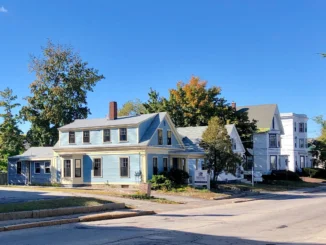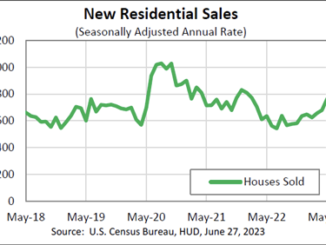
The headline conveys the thesis quite well when it comes to the New Residential Sales data just released by the Census Bureau. July’s total fell to a seasonally-adjusted annual pace of 511k, down from 585k last month and well below the median forecast of 575k. This is the slowest pace of sales since early 2016.
Sales are divided into 4 areas of the country. The South added 342k of the 511k while the West added 98k. Both were down more than 12% month over month–more than enough to tank the national number. Incidentally, the Midwest’s 54k contribution was more than 20% lower while the Northeast improved 13.3% with a 17k unit annual pace.
Put ’em together and whaddaya got?
Ouch.
Notably, this is NEW home sales–not to be confused with Existing Home Sales, which comprise a far bigger portion of the market (although they’ve also tanked).
Price shifts are getting interesting as well. In outright terms, things still look boomy.
Even when we calculate the year-over-year percent change, prices are still rising, but the pace of appreciation is now moving decisively lower, back into a range that had at least been a part of reality during the past two price booms.
The chart above is a bit “busy.” We can smooth it out by applying a 4-month moving average.
One thing to keep in mind on the price metrics in New and Existing home sales data is that they are not adjusted with the same apples to apples approach found in the housing market’s most widely followed price indices. For example, if builders are focusing on smaller homes, that could create some additional downward pressure on median prices.
So what’s up with the big drop in sales? It’s the same old story for many months now in 2022. Prices surged 40%+ in 2 years, then rates surged at the fastest pace since the 1980s. Affordability quickly became prohibitive. Buyers were more willing to sit and wait. Now we’re waiting to find out if there’s a combination of rates and price moderation that will bring them back into the fold en masse. Certainly there is, but the question is how low prices/rates need to go.



